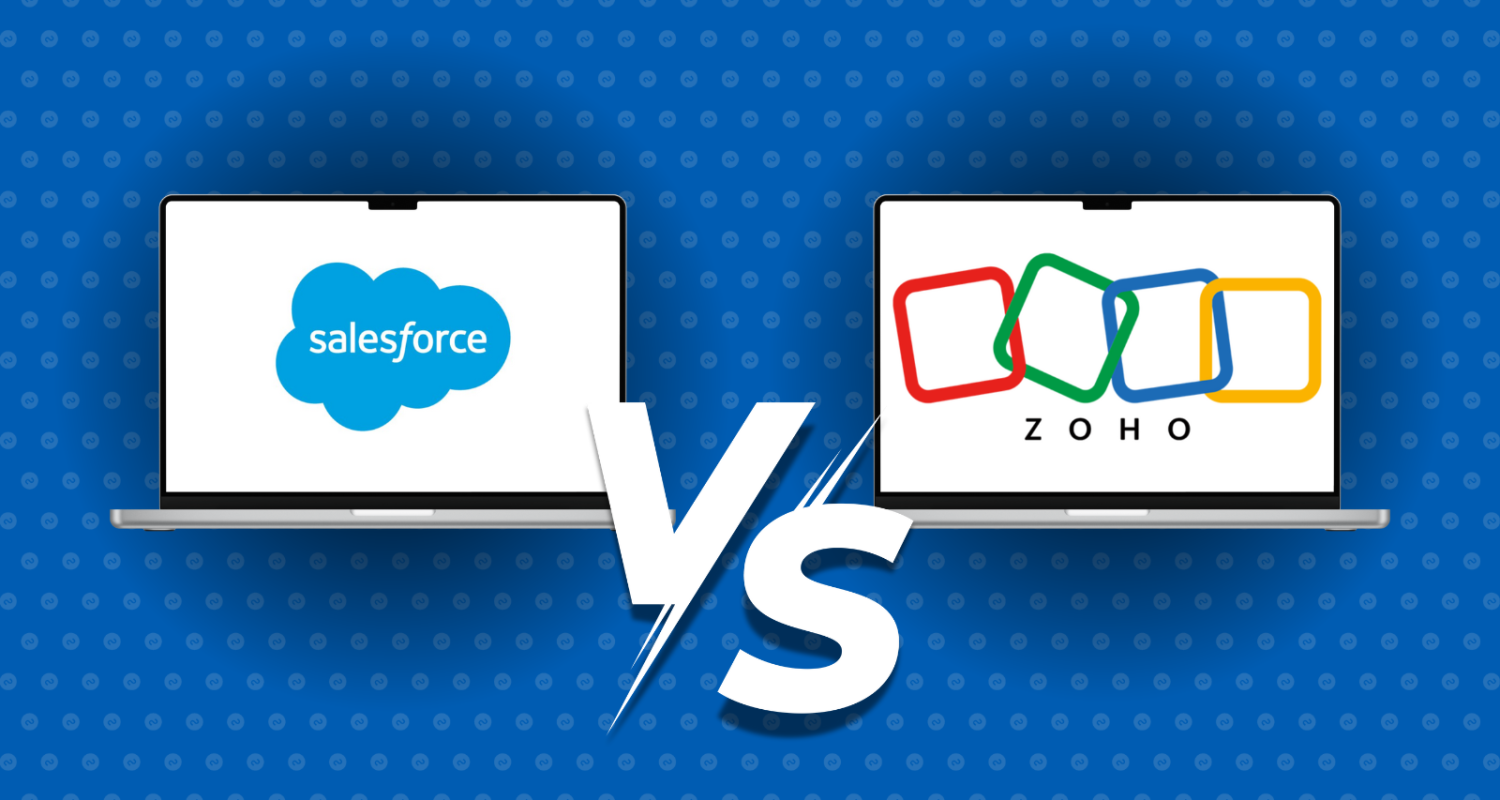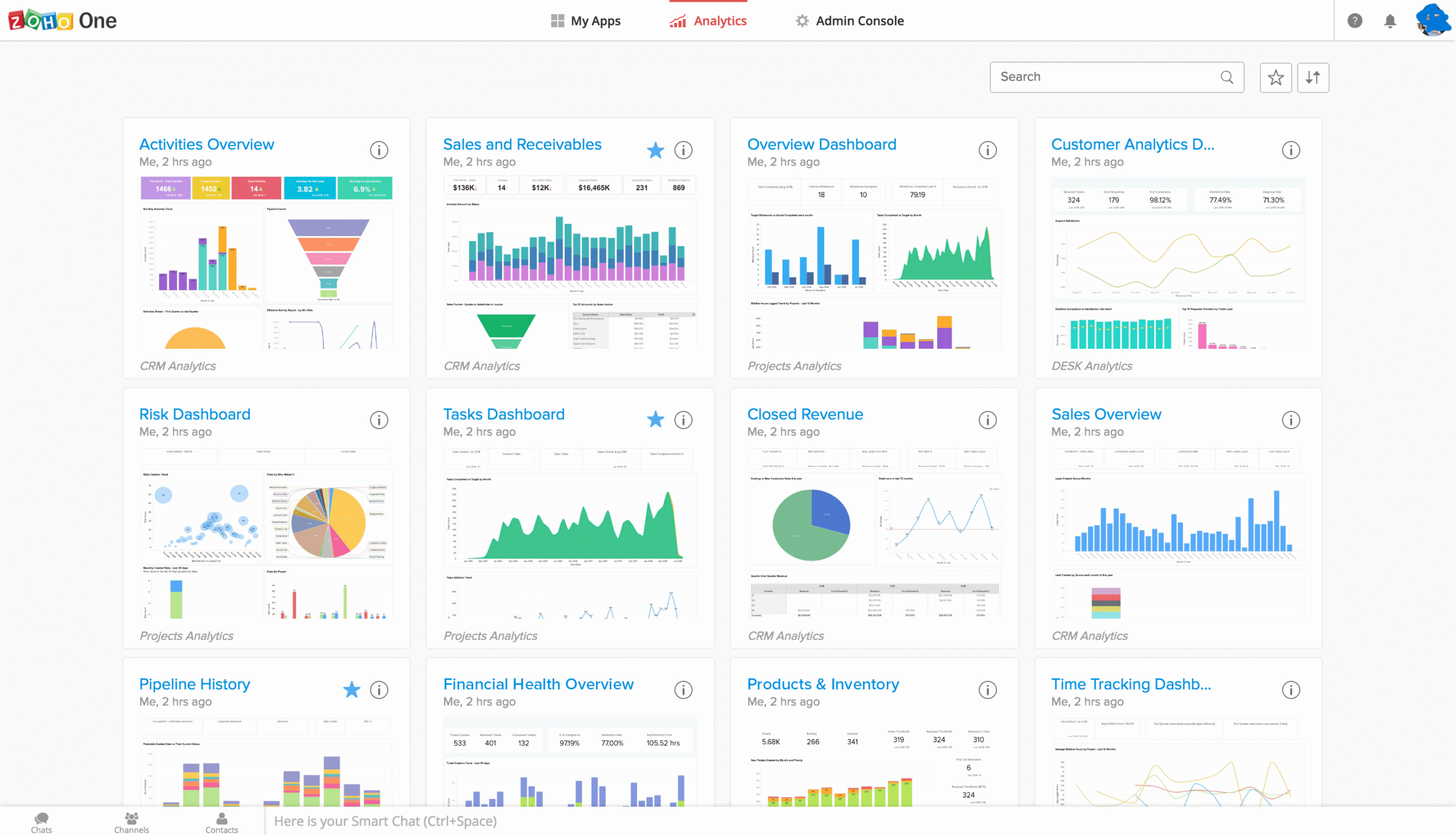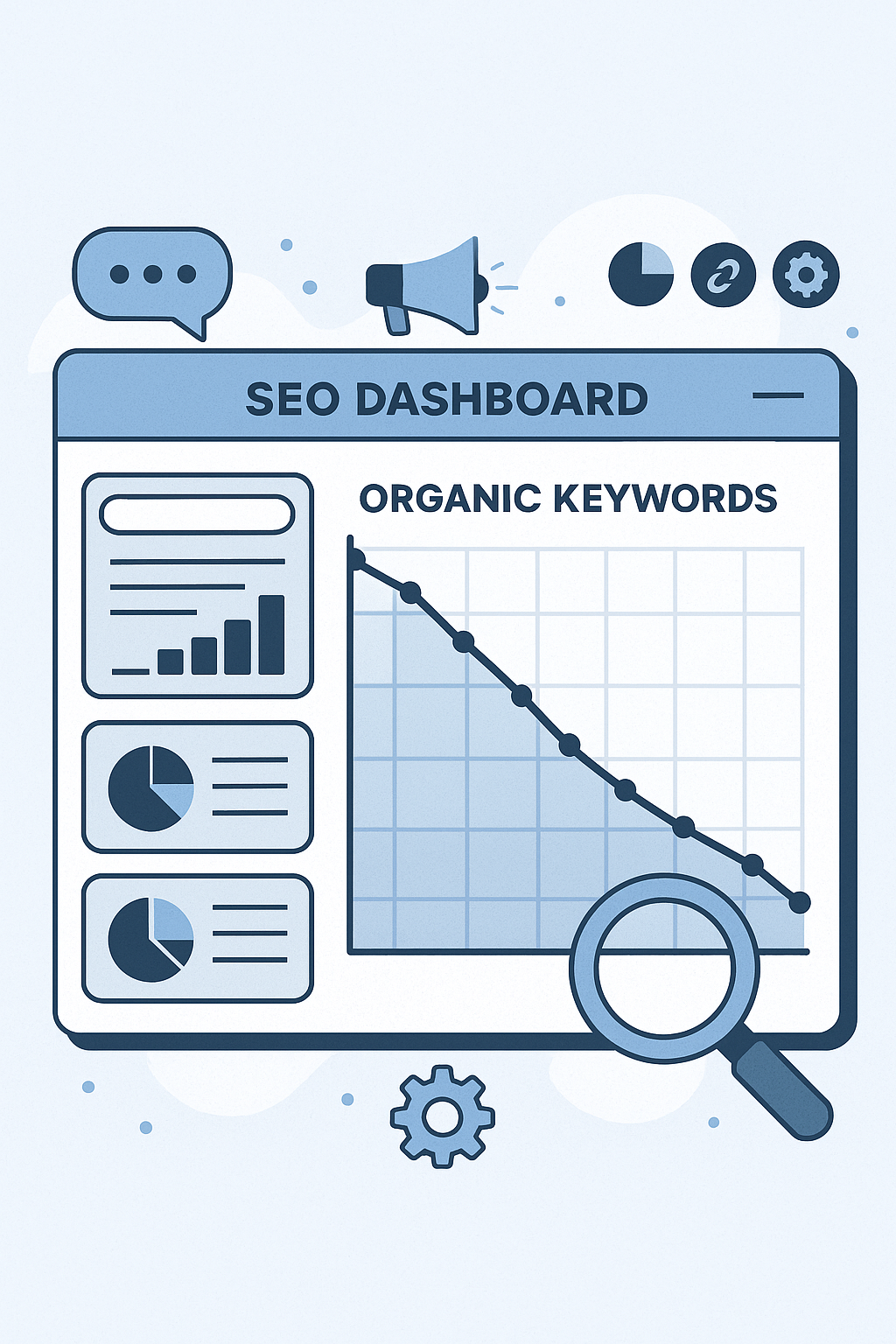Choosing the right Customer Relationship Management (CRM) system(Zoho CRM vs Salesforce) is one of the most critical decisions your business will make. The right CRM can transform how you manage customer relationships, streamline sales processes, and drive revenue growth. The wrong choice can lead to wasted resources, poor adoption, and missed opportunities.
Two names consistently dominate the CRM conversation: Salesforce and Zoho CRM. Salesforce holds the position as the world’s leading CRM platform with approximately 23% market share and serves over 150,000 companies globally. Zoho CRM, while smaller, has rapidly gained ground with 250,000+ businesses choosing its platform, particularly among small to medium-sized enterprises.
But which one is right for your business? This comprehensive comparison examines Zoho CRM and Salesforce across every dimension that matters: pricing, features, ease of use, customization, integration capabilities, support, and scalability.
By the end of this guide, you’ll have a clear understanding of which platform aligns with your business needs, budget, and growth trajectory.
Quick Comparison Overview
Before diving into the details, here’s a snapshot of how these two CRM giants compare:
Zoho CRM is ideal for small to medium-sized businesses seeking an affordable, user-friendly CRM with solid features and extensive customization options. It offers exceptional value for money and includes features in lower-tier plans that competitors charge premium prices for.
Salesforce is the enterprise-grade solution for large organizations requiring extensive customization, advanced analytics, and a massive ecosystem of third-party integrations. It’s the most powerful CRM available but comes with enterprise-level complexity and costs.
Neither platform is inherently “better” – the right choice depends entirely on your specific business context, which we’ll explore in detail.
Pricing: A Critical Difference
Cost is often the deciding factor for many businesses, and this is where Zoho CRM and Salesforce differ dramatically.
Zoho CRM Pricing Structure
Zoho CRM offers five pricing tiers designed to accommodate businesses at different stages:
Free Edition: Up to 3 users with basic CRM functionality including lead and contact management, tasks, and mobile apps. This is genuinely free forever, not a limited trial.
Standard Plan: $14 per user/month (billed annually) or $20 per user/month (billed monthly). Includes sales forecasting, workflows, email insights, and basic analytics.
Professional Plan: $23 per user/month (annual) or $35 per user/month (monthly). Adds inventory management, custom reports, validation rules, and web forms.
Enterprise Plan: $40 per user/month (annual) or $50 per user/month (monthly). Includes advanced customization, territory management, Zia AI assistant, and advanced analytics.
Ultimate Plan: $52 per user/month (annual) or $65 per user/month (monthly). Offers enhanced storage, feature limits, and advanced capabilities.
Salesforce Pricing Structure
Salesforce operates at a significantly higher price point with four main editions:
Essentials: $25 per user/month (annual billing) with a maximum of 10 users. Basic CRM functionality for small teams.
Professional: $80 per user/month (annual billing). Standard CRM features suitable for growing sales teams.
Enterprise: $165 per user/month (annual billing). Advanced customization and automation capabilities.
Unlimited: $330 per user/month (annual billing). Includes 24/7 support and unlimited online training.
The Cost Reality
For a team of 10 users on mid-tier plans:
- Zoho CRM Professional: $2,760 per year ($23 x 10 x 12)
- Salesforce Professional: $9,600 per year ($80 x 10 x 12)
That’s a difference of $6,840 annually – nearly 3.5 times more expensive for Salesforce. For a 50-user organization on higher-tier plans, the gap widens to tens of thousands of dollars annually.
However, price alone doesn’t tell the complete story. You must consider what you’re getting for that investment.
Features and Functionality
Both platforms offer comprehensive CRM capabilities, but they differ in depth, breadth, and accessibility of features.
Core CRM Features
Contact and Lead Management: Both platforms excel at organizing customer information. Zoho CRM provides clean, intuitive interfaces for managing contacts, while Salesforce offers more granular control over data relationships and hierarchies.
Sales Pipeline Management: Zoho CRM’s pipeline visualization is straightforward and effective, perfect for most businesses. Salesforce’s pipeline management includes more advanced forecasting tools and AI-powered insights, particularly valuable for complex B2B sales cycles.
Email Integration: Zoho CRM integrates seamlessly with Gmail, Outlook, and other email providers, including two-way sync and email tracking. Salesforce offers similar integration but with more extensive customization options through its Einstein Activity Capture.
Mobile Applications: Both provide robust mobile apps for iOS and Android. Zoho’s mobile app is praised for its clean interface and offline functionality. Salesforce’s mobile app offers more customization but with a steeper learning curve.
Automation Capabilities
Zoho CRM: Workflow automation is available starting with the Standard plan. You can automate email notifications, task assignments, field updates, and webhook triggers. The Blueprint feature (available in Professional and above) allows you to map complex business processes visually.
Salesforce: Process Builder and Flow provide powerful automation capabilities, but these advanced features are typically reserved for Enterprise tier and above. The automation possibilities are virtually limitless but require significant configuration expertise.
Analytics and Reporting
Zoho CRM: Offers robust reporting from the Professional tier upward. You can create custom reports, schedule automated reports, and build dashboards with various chart types. The Analytics Plus add-on provides more advanced business intelligence capabilities.
Salesforce: Reports and dashboards are available across all tiers, with increasingly sophisticated options at higher levels. Einstein Analytics (now Tableau CRM) provides world-class business intelligence but comes at an additional cost starting at $75 per user/month.
Artificial Intelligence
Zoho CRM: Zia, Zoho’s AI assistant (Enterprise tier and above), provides predictive sales scoring, best time to contact suggestions, anomaly detection, and conversational AI for data queries. It’s included in the plan price without additional charges.
Salesforce: Einstein AI offers powerful predictive analytics, opportunity scoring, and automated data entry. However, many Einstein features require additional purchases beyond your base Salesforce subscription, potentially adding $50-$150+ per user/month.
Customization Options
Zoho CRM: Offers extensive customization including custom fields, modules, buttons, links, and page layouts. You can build custom functions using Deluge (Zoho’s scripting language), though this requires technical knowledge. Most customizations can be accomplished through the visual interface without coding.
Salesforce: Provides unparalleled customization through its platform. You can essentially rebuild Salesforce to match any business process using Apex (Salesforce’s programming language) and Lightning components. This flexibility is both Salesforce’s greatest strength and a potential weakness for businesses without dedicated Salesforce developers.
Ease of Use and Learning Curve
User adoption makes or breaks CRM implementations, making ease of use critically important.
Zoho CRM User Experience
Zoho CRM prioritizes simplicity and accessibility. New users can typically navigate the basic functions within hours. The interface is clean, modern, and follows intuitive design principles. Common tasks like adding contacts, creating deals, and logging activities are straightforward.
The learning curve becomes steeper when implementing advanced features like custom functions or complex automation, but the majority of users won’t need these capabilities. Zoho provides extensive documentation, video tutorials, and an active community forum.
Training Time: Most users become proficient with basic functions in 1-2 days, with full feature competency achievable in 1-2 weeks.
Salesforce User Experience
Salesforce’s interface has evolved significantly with Lightning Experience, offering a more modern look than its classic interface. However, the platform’s extensive capabilities create inherent complexity. New users often feel overwhelmed by the number of options, tabs, and settings.
Salesforce is enterprise software designed to handle complex business processes, and this shows in the user experience. Simple tasks may require multiple clicks or navigating through various menus. The platform assumes users will receive formal training.
Training Time: Basic competency typically requires 1-2 weeks of training, with full platform expertise taking months. Many organizations hire Salesforce-certified administrators to manage the system.
Administration and Setup
Zoho CRM: Small business owners or managers can typically handle basic administration themselves. Setup wizards guide you through initial configuration, and most settings are accessible through clearly labeled menus.
Read About : How to Set Up Zoho CRM
Salesforce: Often requires dedicated administrators or external consultants, especially for initial setup and ongoing customization. The Setup menu contains hundreds of configuration options, many with technical terminology that non-technical users find challenging.
Integration and Ecosystem
CRM systems don’t operate in isolation – they need to connect with your other business tools.
Zoho CRM Integration Options
Zoho CRM integrates natively with the entire Zoho ecosystem, including:
- Zoho Mail (email hosting)
- Zoho Books (accounting)
- Zoho Campaigns (email marketing)
- Zoho Desk (customer support)
- Zoho Analytics (business intelligence)
- 40+ other Zoho applications
Beyond Zoho’s ecosystem, it connects with popular third-party applications through:
- Pre-built integrations with services like Google Workspace, Microsoft 365, MailChimp, Slack, QuickBooks, and more
- Zapier integration enabling connections to 3,000+ apps
- RESTful APIs for custom integrations
- Webhooks for real-time data sync
The Zoho Marketplace offers hundreds of extensions and integrations, though it’s significantly smaller than Salesforce’s AppExchange.
Salesforce Integration Options
Salesforce’s AppExchange is the world’s largest business app marketplace with over 4,000 applications across every business category imaginable. This massive ecosystem means you can find specialized solutions for virtually any need.
Native Integrations: Salesforce connects with major platforms including Google Workspace, Microsoft 365, LinkedIn, DocuSign, and countless others.
API Access: Salesforce provides robust APIs available across all paid tiers, enabling custom integrations with any system.
MuleSoft: Salesforce owns MuleSoft, an enterprise integration platform that facilitates complex system integrations, though it’s an additional expensive add-on.
The breadth and depth of Salesforce’s integration ecosystem is unmatched, making it ideal for businesses with complex tech stacks requiring specialized integrations.
Customer Support and Resources
When problems arise, quality support becomes invaluable.
Zoho CRM Support
Zoho provides tiered support based on your plan:
Free and Standard Plans: Email support with 24-hour response time and community forum access.
Professional and Above: Email and phone support with faster response times.
Enterprise and Ultimate: Priority support with dedicated account managers available as add-ons.
Zoho’s documentation is comprehensive with detailed guides, video tutorials, and an active community forum where users and Zoho staff answer questions. However, some users report that email support responses can be slow, and phone support quality varies.
Salesforce Support
Salesforce’s support structure:
All Plans: Basic online support and community access (Trailblazer Community).
Premier Support: $300 per month (for up to 10 users) provides 24/7 support, faster response times, and system health checks.
Signature Success Plans: Starting at $3,000 per month for dedicated success resources and strategic guidance.
Salesforce’s Trailblazer Community is exceptional – massive, active, and filled with certified experts who quickly answer questions. The Trailhead learning platform offers free, gamified training on every aspect of Salesforce.
Many businesses rely on Salesforce consulting partners for implementation and ongoing support, adding to the total cost of ownership.
Scalability and Growth
How well does each platform accommodate business growth?
Zoho CRM Scalability
Zoho CRM effectively serves businesses from solo entrepreneurs to enterprises with thousands of users. You can start on the free plan and upgrade as needs grow. The platform handles increasing data volumes well, though some users report performance slowdowns with millions of records.
Zoho’s modular ecosystem allows you to add complementary products as needed – start with CRM, add accounting software, then marketing automation, and so on – creating an integrated business management suite.
However, extremely large enterprises with highly complex requirements may eventually outgrow Zoho’s capabilities, particularly regarding advanced customization and enterprise-specific features.
Salesforce Scalability
Salesforce is built for enterprise scale from the ground up. It handles billions of transactions daily across its customer base and can accommodate virtually any business size or complexity. The platform’s architecture ensures consistent performance regardless of data volume.
For rapidly growing startups, Salesforce offers a clear upgrade path from Essentials to Professional to Enterprise and beyond, with each tier providing significantly more capabilities.
The trade-off is that small businesses may be paying for enterprise-grade infrastructure they don’t yet need, though this becomes an advantage as they scale.
Security and Compliance
Data security is non-negotiable in today’s business environment.
Zoho CRM Security
Zoho provides enterprise-grade security features including:
- Data encryption in transit and at rest
- Two-factor authentication
- IP restrictions
- Regular security audits
- GDPR, HIPAA, and SOC 2 Type II compliance
- Data centers across multiple global regions
Zoho takes security seriously and has maintained a strong security track record. However, it’s worth noting that Salesforce’s security infrastructure is larger and more extensively audited.
Salesforce Security
As the CRM leader, Salesforce invests heavily in security:
- Bank-level encryption
- Comprehensive identity and access management
- Advanced threat detection
- Extensive compliance certifications (GDPR, HIPAA, SOC 2, ISO 27001, and many more)
- Shield platform add-on for enhanced security monitoring and encryption
Salesforce’s security infrastructure is considered industry-leading, making it the default choice for highly regulated industries like healthcare, finance, and government.
Implementation and Time to Value
How quickly can you get up and running?
Zoho CRM Implementation
Most small to medium businesses can implement Zoho CRM in 1-4 weeks:
- Days 1-3: Account setup, user configuration, basic customization
- Week 2: Data migration, email integration, workflow setup
- Weeks 3-4: Testing, training, refinement
Many businesses successfully implement Zoho CRM themselves using the provided setup wizards and documentation. Those requiring assistance can hire Zoho-certified consultants at rates typically ranging from $75-$150 per hour.
Salesforce Implementation
Salesforce implementations typically take longer:
- Small businesses (under 50 users): 1-3 months
- Mid-size businesses: 3-6 months
- Enterprises: 6-12+ months
Most organizations hire Salesforce implementation partners for successful deployments. Implementation costs often equal or exceed the first-year subscription cost, with consulting fees ranging from $150-$300+ per hour.
The extended timeline and higher costs reflect Salesforce’s complexity and the extensive customization typically performed during implementation.
Which CRM is Right for Your Business?
Now the critical question: which platform should you choose?
Choose Zoho CRM If:
Budget-Conscious: You need enterprise features without enterprise pricing. Zoho delivers exceptional value, especially for small to medium businesses.
Quick Implementation Needed: You want to be operational quickly without months-long implementation projects.
Simpler Requirements: Your sales process is relatively straightforward without extreme complexity requiring extensive customization.
Growing SMB: You’re a small or medium-sized business planning steady growth and want a CRM that scales affordably.
Limited IT Resources: You need a system that business users can manage without dedicated technical staff.
Zoho Ecosystem User: You already use or plan to use other Zoho products for an integrated business suite.
Choose Salesforce If:
Enterprise Scale: You’re a large organization or rapidly scaling startup expecting explosive growth.
Complex Requirements: Your business processes are highly complex, requiring extensive customization and advanced automation.
Industry-Specific Needs: You operate in a heavily regulated industry requiring top-tier compliance and security certifications.
Extensive Integrations: You need deep integrations with specialized enterprise software and have complex tech stack requirements.
Advanced Analytics: You require sophisticated business intelligence and predictive analytics capabilities.
Dedicated Resources: You have or can afford dedicated Salesforce administrators and developers to maximize the platform.
Best-in-Class Everything: Budget is less constrained, and you want the market-leading solution regardless of cost.
Real-World Use Cases
Small Business Success with Zoho CRM
A 15-person marketing agency switched from spreadsheets to Zoho CRM Professional. Within two weeks, they had the system fully operational. The total cost was $4,140 annually for 15 users. They automated lead assignment, proposal tracking, and client onboarding. ROI was achieved within five months through improved lead conversion and time savings.
Enterprise Success with Salesforce
A 2,000-employee manufacturing company implemented Salesforce Enterprise for their global sales teams. The implementation took 8 months and cost $1.2 million including licenses, implementation, and customization. Despite the high investment, they reduced their sales cycle by 30%, improved forecast accuracy by 25%, and integrated their ERP, marketing automation, and support systems into one unified platform. ROI was achieved within 18 months.
The Verdict: Not Better, Just Different
The Zoho CRM vs Salesforce debate doesn’t have a universal winner. Both are excellent CRM platforms that excel in different contexts.
Zoho CRM wins on affordability, ease of use, and speed to value. It’s the smart choice for cost-conscious businesses seeking comprehensive CRM capabilities without enterprise complexity or costs.
Salesforce wins on power, flexibility, and ecosystem depth. It’s the right choice for enterprises requiring maximum customization, industry-leading features, and unlimited scalability.
The best CRM is the one that fits your specific needs, budget, and technical capabilities. A small business paying for Salesforce Enterprise is wasting money, just as a Fortune 500 company trying to run on Zoho CRM might find limitations.
Making Your Decision
Before making your final choice, take these steps:
Trial Both Platforms: Zoho offers a 15-day free trial of paid features, and Salesforce provides 30-day trials. Hands-on experience reveals more than any comparison article.
Identify Must-Have Features: List your non-negotiable requirements and verify both platforms support them.
Calculate Total Cost of Ownership: Include not just subscriptions but implementation, training, administration, and integration costs.
Consider Growth Trajectory: Will this CRM still serve your needs in 3-5 years?
Involve Your Team: The people using the CRM daily should test the platforms and provide input.
Check References: Speak with similar businesses using each platform about their experiences.
Choosing between Zoho CRM and Salesforce is not about finding the objectively superior product – both are powerful, mature CRM platforms. It’s about finding the right fit for your business size, complexity, budget, and growth plans.
For most small to medium-sized businesses, Zoho CRM offers the best combination of features, usability, and value. You get 80% of Salesforce’s capabilities at 20-30% of the cost, with faster implementation and easier management.
For large enterprises and rapidly scaling companies with complex needs and available resources, Salesforce’s additional capabilities justify its premium pricing. The depth of customization, extensive ecosystem, and enterprise-grade everything make it worth the investment.
Whichever platform you choose, success depends more on proper implementation, team adoption, and ongoing optimization than the CRM itself. Both Zoho CRM and Salesforce can transform your customer relationships and drive business growth – if implemented thoughtfully and used consistently.
Ready to make your choice? Start with free trials of both platforms, involve your team in testing, and select the CRM that best aligns with your current reality and future vision.










